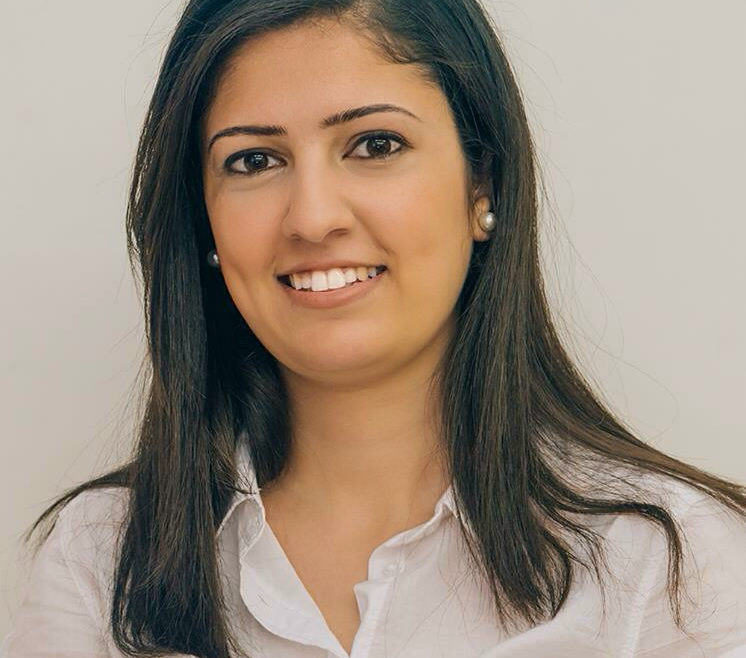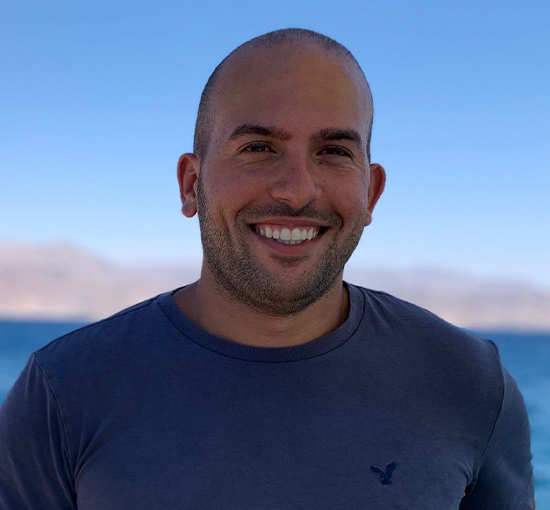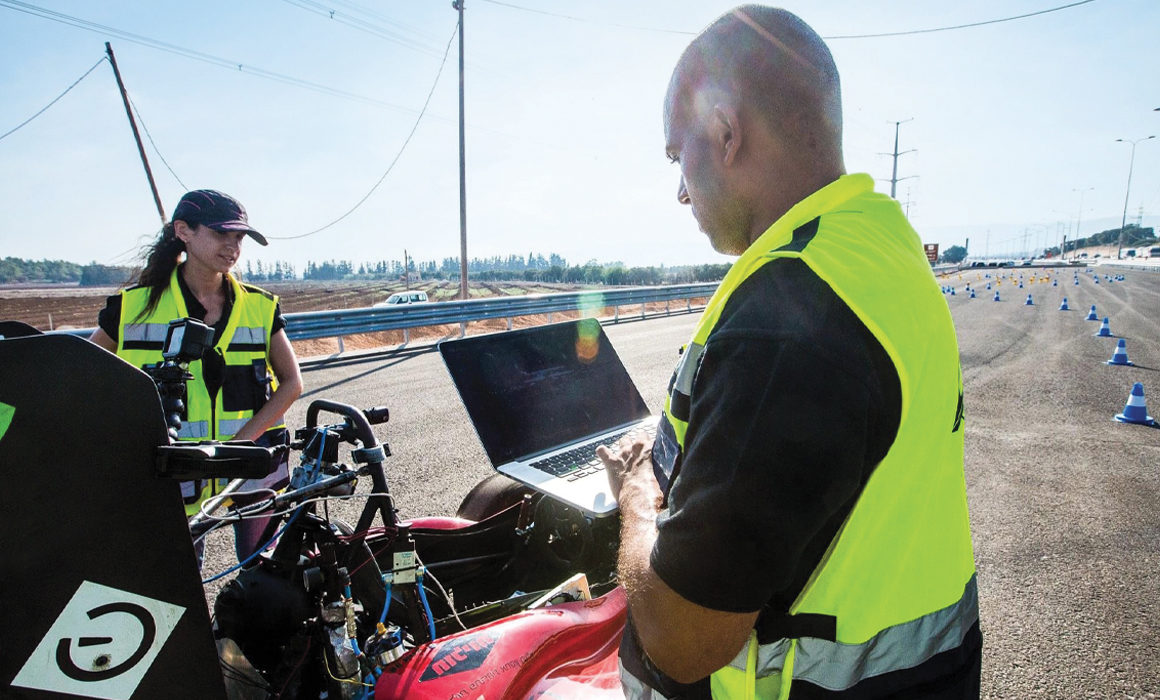The Engine and Soul of the Technion
Rawan Omar ’14, M.S. ’17 was first introduced to the Technion as part of a high school tour to encourage women in STEM. Excited by what she saw, she told herself, “I want to come again, but next time I’ll come as a student.”
Omar was born and raised in the small, rural Israeli village of Zemer, the oldest of five sisters.
Growing up, she was interested in science and technology, but it was not common for women in her village to pursue STEM.

“I faced challenges as a passionate female who aspired to be an engineer,” she said. “But I decided to stand against the odds and I became the first woman in my village to pursue higher degrees in engineering.”
With a supportive family behind her, Omar earned her bachelor’s and master’s degrees in biotechnology and food engineering. Sadly, in the last year of her master’s studies, her father was diagnosed with lung cancer. Her graduation ceremony was the last event he attended before passing away. Nonetheless, “this loss made me more determined to continue my studies to be able to support my family, community, and country in return,” she said.
Following two years at Teva Pharmaceuticals as a chemical analyst, Omar returned to the Technion for her Ph.D. Currently, she is working with Professor Hossam Haick, known for his nanoarray technology, on developing smart, wearable patches for monitoring health and disease, particularly heart disease. She likens their latest innovation to a smart “Band-Aid” fitted with microneedles. It continuously measures various health parameters such as glucose and sodium levels, and alerts patients in real time if something is wrong.
Omar is also an advocate for empowerment and equal access to higher education. She co-founded the Alrowad-YASA (Young Arab Scientists Association) to close the gap between Israeli Arab scholars and the scientific community at large. As a member of the New York Academy of Sciences, she volunteers in their programs 1,000 Girls, 1,000 Futures and The Junior Academy to mentor and encourage young students from around the world, especially girls in science and engineering. She and her husband also founded a company that provides outdoor and indoor activities geared toward team building and self-empowerment.
She acknowledges that her path was difficult at first. “But I proved it was possible,” she said. Her perseverance and achievement have not gone unnoticed. Three young women in her hometown are now seeking undergraduate degrees in biomedical and civil engineering, and her youngest sister will soon start studying data science. “I’m proud that in my village I’ve encouraged more girls to study at the Technion.”
Omar and Dean Zadok ’19 were two of four Ilene & Steve Berger Technion Visiting Fellows, selected for their excellence and well-rounded personalities, to visit American Technion Society supporters across the U.S. this past year.
Zadok visited four Israeli universities when deciding where to study computer science. He chose the Technion — hands down. His story is a testament to the widely held belief that the Technion attracts the best.
Zadok always knew he wanted to be a computer scientist.

So he met with researchers at several universities to determine the best fit.
“The people at the Technion were more modest about their research,” he said. “There was less bragging, they just wanted to work.” After completing his military service as a team leader in the IT department of the Israel Defense Forces, Zadok left his hometown of Tel Aviv to start his studies at the Technion.
One day he passed by a student’s house and saw the Technion Formula Racecar team presenting their project — a Formula-style racecar. “It was fascinating,” he said. “I didn’t believe that it was their own work. I couldn’t imagine students building this themselves.” Soon he was right in there with the mechanical engineering and materials science students designing and building a prototype car for the International Formula Student competitions.
His first project was a telemetry system that supervises the car remotely to detect problems. Then, as the only computer scientist on the team, he was called upon to help build Israel’s first driverless Formula racecar. Over the course of the next year, the team refurbished one of its oldest racecars. Zadok recruited a group of computer science students, and together they developed a machine learning algorithm that allowed the car to drive on its own without any human intervention. “We were the first Israelis to put an autonomous vehicle on the road for testing,” Zadok said. And the event received widespread media attention in Israel.
After earning his bachelor’s degree, Zadok landed a summer internship at Microsoft Research in Seattle researching human-related challenges in autonomous navigation. He then returned to the Technion’s computer science faculty but changed course.
“I realized I wanted to shift my abilities to do something more beneficial to the community,” he said. Years earlier, he had an accident that left him with limited use of one hand.
Motivated by that experience, Zadok looked for opportunities to combine computer science with medicine. He discovered a technological gap in available products for robotic prostheses and decided to center his master’s degree thesis on the issue.
Specifically, Zadok is developing a prosthetic hand that combines aspects of the algorithm used in his autonomous racecar with ultrasound technology. Currently, most prosthetic hands can only perform simple gestures such as grasping and letting go. Zadok is creating a sensor-based system able to read physiological signals from the lower limb and instruct a robotic hand to perform dexterous, fine finger movements such as keyboard typing or playing the piano. He also volunteers at Haifa3D, a nonprofit that provides free 3D printed hands to people with congenital disorders or who have had traumatizing accidents.
Omar and Zadok are among the Technion’s 5,000 graduate students — the engine that carries out much of the university’s cutting-edge research. Their creativity and determination are certain to help shape the future, bringing new medical devices and technologies to change the lives of people around the world.
